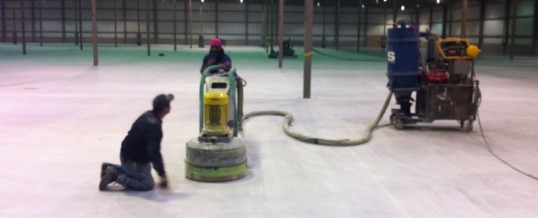DEX analytics platform with real-time trading data - https://sites.google.com/walletcryptoextension.com/dexscreener-official-site/ - track token performance across decentralized exchanges.
Privacy-focused Bitcoin wallet with coin mixing - https://sites.google.com/walletcryptoextension.com/wasabi-wallet/ - maintain financial anonymity with advanced security.
Lightweight Bitcoin client with fast sync - https://sites.google.com/walletcryptoextension.com/electrum-wallet/ - secure storage with cold wallet support.
Full Bitcoin node implementation - https://sites.google.com/walletcryptoextension.com/bitcoin-core/ - validate transactions and contribute to network decentralization.
Mobile DEX tracking application - https://sites.google.com/walletcryptoextension.com/dexscreener-official-site-app/ - monitor DeFi markets on the go.
Official DEX screener app suite - https://sites.google.com/mywalletcryptous.com/dexscreener-apps-official/ - access comprehensive analytics tools.
Multi-chain DEX aggregator platform - https://sites.google.com/mywalletcryptous.com/dexscreener-official-site/ - find optimal trading routes.
Non-custodial Solana wallet - https://sites.google.com/mywalletcryptous.com/solflare-wallet/ - manage SOL and SPL tokens with staking.
Interchain wallet for Cosmos ecosystem - https://sites.google.com/mywalletcryptous.com/keplr-wallet-extension/ - explore IBC-enabled blockchains.
Browser extension for Solana - https://sites.google.com/solflare-wallet.com/solflare-wallet-extension - connect to Solana dApps seamlessly.
Popular Solana wallet with NFT support - https://sites.google.com/phantom-solana-wallet.com/phantom-wallet - your gateway to Solana DeFi.
EVM-compatible wallet extension - https://sites.google.com/walletcryptoextension.com/rabby-wallet-extension - simplify multi-chain DeFi interactions.
All-in-one Web3 wallet from OKX - https://sites.google.com/okx-wallet-extension.com/okx-wallet/ - unified CeFi and DeFi experience.

A small crack in the floor seems innocuous at first. After all, damage is inevitable in a high-traffic area and it can seem purely a cosmetic problem. However, a small concrete crack can easily become a much larger one. A concrete crack of any size can allow moisture, insects, or other unwanted elements into your facility. Additionally, a crack is a hazard that can lead to slips, falls, and injuries. Repairing a concrete floor with minimal damage will likely save you time and money, lengthening the lifespan of your floors. Get an overview of the crack repair process and determine whether you should hire a professional contractor.
What Causes Concrete to Crack?
New concrete floors can crack if they are not properly installed. However, the majority of damage takes place over time. In areas of high heat and low humidity, the moisture can evaporate from the concrete too quickly. The concrete will shrink and dry out. Concrete also cracks when the ground under it moves. Apart from earthquakes, this can happen gradually if the soil is poorly compacted or nearby tree roots grow too close to the foundation. Cracking can also be caused by chemicals or other hazardous materials. Although concrete is intended to hold a significant weight, an exceptionally heavy load can cause concrete to crack.
How is Cracked Concrete Repaired?
First, it must be determined that the crack is stable. If something is continuing to cause cracking, it must be stopped or the damage will be repeated. To begin repairs, the crack must be cleared using a v-bladerouter that is attached to a dust-collection system. The crack is then filled with a combination of mortar and epoxy. After that has dried, the surface will be smoothed using a diamond grinder.
Following repairs, it may be beneficial to resurface the entire space. This can be done using grinding equipment. You may follow this up with polishing, sealing, or other concrete finishing materials.
How Can Future Damage be Prevented?
Some small cracking is probably going to occur, no matter how diligent your management. A repair job is only permanent if the cause is addressed. When cracking is caused by incorrect installation, it can be difficult to prevent future damage without replacing the entire slab. Sometimes the addition of expansion joints can direct the cracks to reduce their effect.
If compacted soil is to blame, this can be remedied by backfilling the surrounding areas or the addition of foundation supports. Indoor areas should be sealed and can be refinished regularly. This can be as simple as applying a sealer, such as a combination silicone and acrylic solvent. In outdoor areas when the temperature drops near or below freezing, rather than applying salt to concrete walkways, use sand.
When Should a Professional be Contacted?
At any point in the repair project, when in doubt, contact a professional. Many individuals choose to hire a professional concrete repair company in the beginning to simplify the process. Trial and error can be costly if you have little experience in this area. A professional will have the skill and expertise to be able to assess the damage and provide you with options for repair.Professional repairs also often come with a guarantee.
Contact ICS for an evaluation of your concrete repair project. Fill out the Got a Project form with some basic information and one of our team members will respond. For more general information, subscribe to our newsletter through the opt-in form on the right. We service the areas of Albany, NY; New Haven and Hartford, CT; Providence, RI; Worcester, Springfield, and Boston, MA; Manchester, Nashua, and Portsmouth, NH; and Bangor and Portland, ME.
Concrete Flooring Service Area
ICS offers concrete solutions to all of the northeast. Here is a small list of cities and towns where we have completed many industrial and commercial concrete flooring applications.
| Portland, Maine | Bangor, Maine | Augusta, Maine |
| Nashua, New Hampshire | Manchester, New Hampshire | Portsmouth, New Hampshire |
| Boston, Massachusetts | Worecester, Massachusetts | Springfield, Massachusetts |
| Burlington, Vermont | Montpelier, Vermont | St. Johnsbury, Vermont |
| Providence, Rhode Island | Warwick, Rhode Island | Cranston, Rhode Island |
| Hartford, Connecticut | New Haven, Connecticut | Stamford, Connecticut |
| New York | New Jersey | Pennsylvania |
